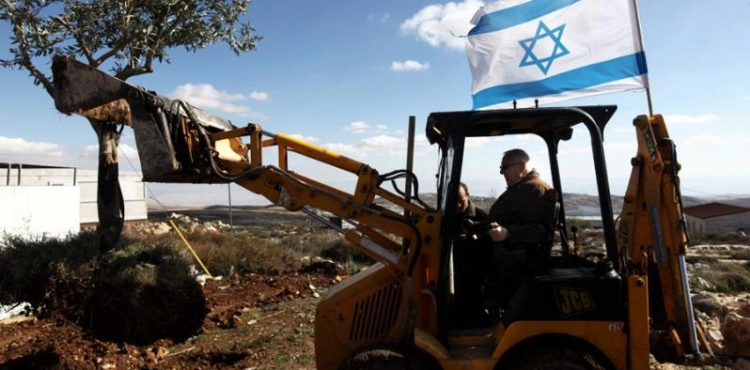Bethlehem _ Palestine News Network
The four villages are part of the so-called hock villages with a population of about 20,000.
Brijie´s remarks came in a press interview following the Israeli occupation forces and their Wemsahin engineers placing signals and numbering places in Al-Damia in the heart of the town of Nahal, with the aim of building a road and delivering it to the 60-block settlement street around the four villages, down to the settlement of "Betar" on Its territory, and then work to expand it to reach the road between Nahal and Haisan, close it and open it only to the settlers, in addition to extending the street to the street connecting the village of Bater in the town of El Khader after the confiscation of land.
He pointed out that at least three plans had been made by the occupying forces and had begun to be implemented at the cost of 185 million Israeli shekels, including the digging of a tunnel in the Jerusalem border to reach the nearby settlement of "Betar" and the adjacent settlement of "Elie Azar" and to be the site of Bir Aoun from the territory of Beit Jala in an average This road is in addition to the construction of a railway in parallel to the settlements west of Bethlehem, one of Ahdavha. This route will be connected to Haifa and Tel Aviv, in addition to doubling the number of settlers in the Betar settlement from 60,000 to 120,000 settlers within the next five years and this needs all of these infrastructures (e) The confiscation of more land and the establishment of tens of thousands of housing units, all at the expense of the four Palestinian villages, which will be transformed into closed cantons and population groups with no extension to their surroundings in the Bethlehem Governorate.
Brijie believes that the dangerous project has one obstacle, the village of Walaja, which falls into the scheme after being surrounded by the wall and devoured by thousands of dunums of it, and the settlement of "Har Gilo" at the entrance of the president, thus isolating it alone from its surroundings, after the inhabitants of the Ein Junizah neighbourhood in the village By confronting the demolition of homes there to be this neighborhood within the Israeli scheme there are dozens of casesThe Supreme Court of Justice has against decisions to demolish more than 30 houses, and some decisions have been made by this court to suspend the demolition of houses, which has disrupted the project, saying that "the consent of the people to make petitions against demolition decisions following the proposals of the Wall Commission is an achievement in itself, but in the other villages We find it difficult to agree to make such petitions, including the concern of citizens over their property for fear of reprisals by Israel in response to these petitions. "












